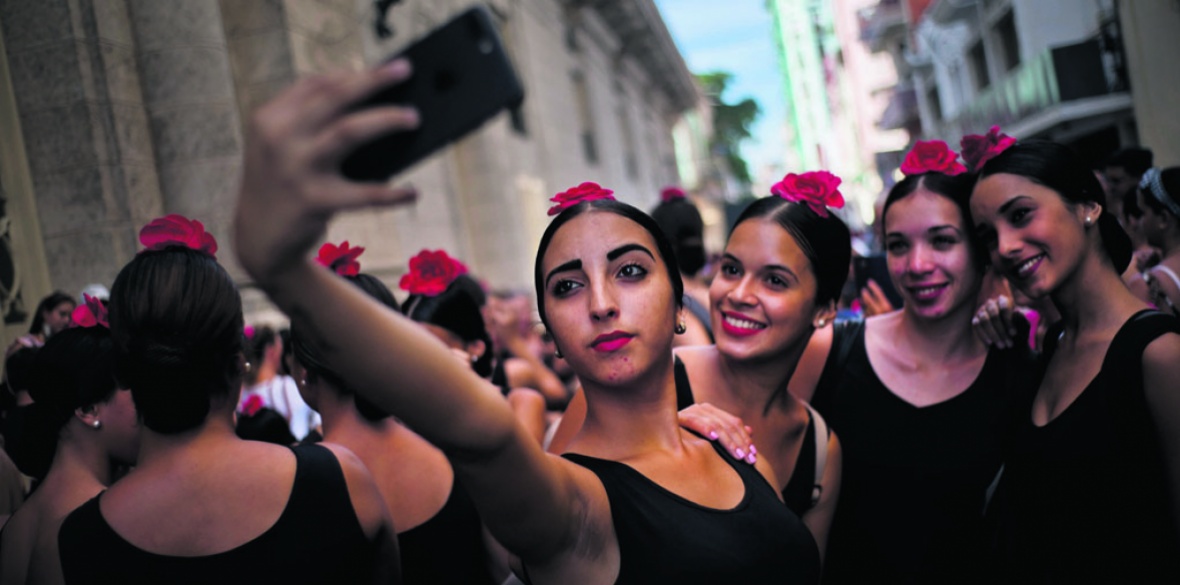This is the last article you can read this month
You can read more article this month
You can read more articles this month
Sorry your limit is up for this month
Reset on:
Please help support the Morning Star by subscribing here
As soon as you arrive in Cuba the repercussions of Fidel Castro’s revolution, which finally ousted the dictator Batista in 1959, are apparent. This is a country which breathes daily the teachings of the men and women who transformed the face of Cuba 60 years on, and representations of Castro and his trusted Comandante Che Guevara can be found everywhere, from billboards to buildings including schools and universities.
Castro’s government was based on his ideologies of equality and fairness and one of its first policies was to eradicate illiteracy in Cuba. The fact that this was implemented in less than a year in 1960-1961 is a testament to Castro’s determination and commitment to educate his people as a way to get them out of poverty. The first post-revolution government thus gave priority to education and, even today, it is allocated a quarter of the country’s budget.
As part of the annual NEU delegation trip to Cuba in October 2018, I visited several schools and a university in the capital Havana and the nearby province of Vinales. This allowed our 24 teachers-strong group to gain some insights into the heart of this astonishing society and to discover an unprecedented education model which Cuban people are rightly proud of.
Without exception, in every school we visited, we were welcomed warmly by staff and students who enthusiastically shared their skills with us. We saw amazing music, dance and poetry performances by children of all ages and abilities, including blind pupils who we were told, follow the national curriculum like the rest of the country. In typical Cuban style and a spirit of equality, schools are responsible to ensure students with special needs are supported effectively so that they don’t lag behind and, special talents are nurtured and valued. All this is of course entirely free, including one-to-one tuition, from nursery to university.
We were overwhelmed by what we saw and heard. This is a system which functions successfully without the material luxuries we take for granted in the UK as, mostly because of the economic blockade imposed by the US. Even pens and notebooks are relatively rare and precious commodities. What Castro’s regime has achieved is not material wealth but social richness and Cubans acknowledge his legacy every day in every sphere of their daily lives, at home but also from school as young as the age of four.
The faces of Fidel, Che, Camilo Cienfuegos, another revolutionary hero, and Jose Marti (a 19th century Havana-born revolutionary philosopher) alongside their most inspirational quotes can be seen on all Cuban school walls. Marti’s ideas about education in particular, live on in the school and university system. As the man said himself, “Education is the only way to save oneself from slavery” and his most cherished dream was a better life for all. Today, Marti remains an omnipresent figure in Cuba. Havana’s international airport is named after him and you will find his likeness alongside Fidel’s in most educational buildings.
Outside schools, Cuba’s shared values of equality, fairness, honesty, respect, solidarity and human freedom are also anchored around the familiar images and words of the same iconic figures and they give all Cubans a sense of belonging and togetherness. After just a few days in Cuba, we too began to relate to these images and concepts and to see the positive influence they have on Cuba’s schooling system. These collective values give students of all ages the moral compass they need to decide what is right and to care deeply not just for each other but also for their society and their environment.
Castro was not a perfect leader and the Cuban system does not try to paint him as such. Indeed, as one teacher explained, it is in recognising both the successes and the failures of revolutionary leaders that the Cuban people can aspire to the values that they espoused, not just view them as heroes from afar. But, undeniably, Castro’s belief that the real wealth of a country is its people still rings true today.
In the Western world where profit and greed dominate daily life, the Cuban education success story is a breath of fresh air which reminds us that meaningful values embedded throughout the school system can greatly enhance the education experience and human development as a whole.










